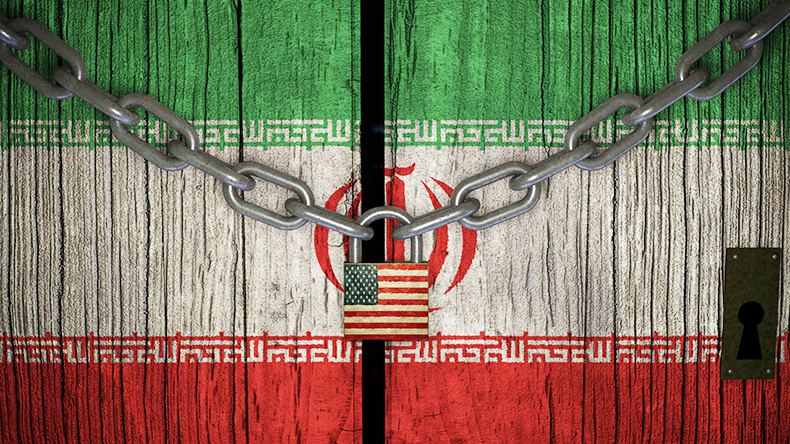Already a subscriber? Make sure to log into your account before viewing this content. You can access your account by hitting the “login” button on the top right corner. Still unable to see the content after signing in? Make sure your card on file is up-to-date.
The United States has announced a wave of new sanctions targeting over 100 individuals, companies, and vessels involved in Iran’s oil and petrochemical trade.
Getting into it: The sanctions announced by the Treasury target the core of Iran’s oil trade, beginning with its extensive“shadow fleet” (a network of tankers and shipping firms that secretly transport Iranian crude and liquefied petroleum gas to international buyers). These ships often switch flags, manipulate tracking data, and conduct ship-to-ship transfers in international waters to obscure the origin of their cargo. Vessels such as the VOY, SEA OPERA, GAS DIOR, and MAX STAR were specifically named and sanctioned for moving millions of barrels of Iranian oil to destinations like China, Sri Lanka, and Bangladesh. Many of the companies managing or owning these ships are based in Hong Kong, the UAE, the Marshall Islands, and Panama, all of which are now facing asset freezes and trade restrictions under US law.

The sanctions also directly target Iran’s oil and petrochemical infrastructure (the backbone of its economy and a key funding source for its nuclear and regional military activities). Major buyers and facilitators, including a Chinese “teapot” refinery, were sanctioned for receiving Iranian crude through these shadow operations. Several UAE-based companies, such as Amita Petrochemical, Slogal Energy, and Markan White Trading, were also identified as critical nodes in moving Iranian product to South Asia.
Tied to these oil sales is a complex financial network designed to hide transactions and circumvent global banking restrictions. The Treasury identified multiple Hong Kong-based shell companies that collectively processed over $125 million in payments related to Iranian oil sales.
In addition to all of this, the US also hit Iran’s regional military footprint by sanctioning entities and individuals tied to Iranian-backed militias in Iraq. Among them is Muhandis General Company, a front controlled by Kata’ib Hizballah, which uses Iraqi government contracts and business fronts like Baladna Agricultural Investments to fund militia operations. The sanctions also named senior banking executives who have reportedly helped launder money and finance operations for the IRGC-Quds Force and other proxy groups. These individuals allegedly controlled Iraqi banks, helped Iran access US dollars, and facilitated the transfer of millions in illicit funds across the region.
In a statement, Treasury Secretary Scott Bessent said, “The Treasury Department is degrading Iran’s cash flow by dismantling key elements of Iran’s energy export machine. Under President Trump, this administration is disrupting the regime’s ability to fund terrorist groups that threaten the United States.”
No comment from Iran yet.







